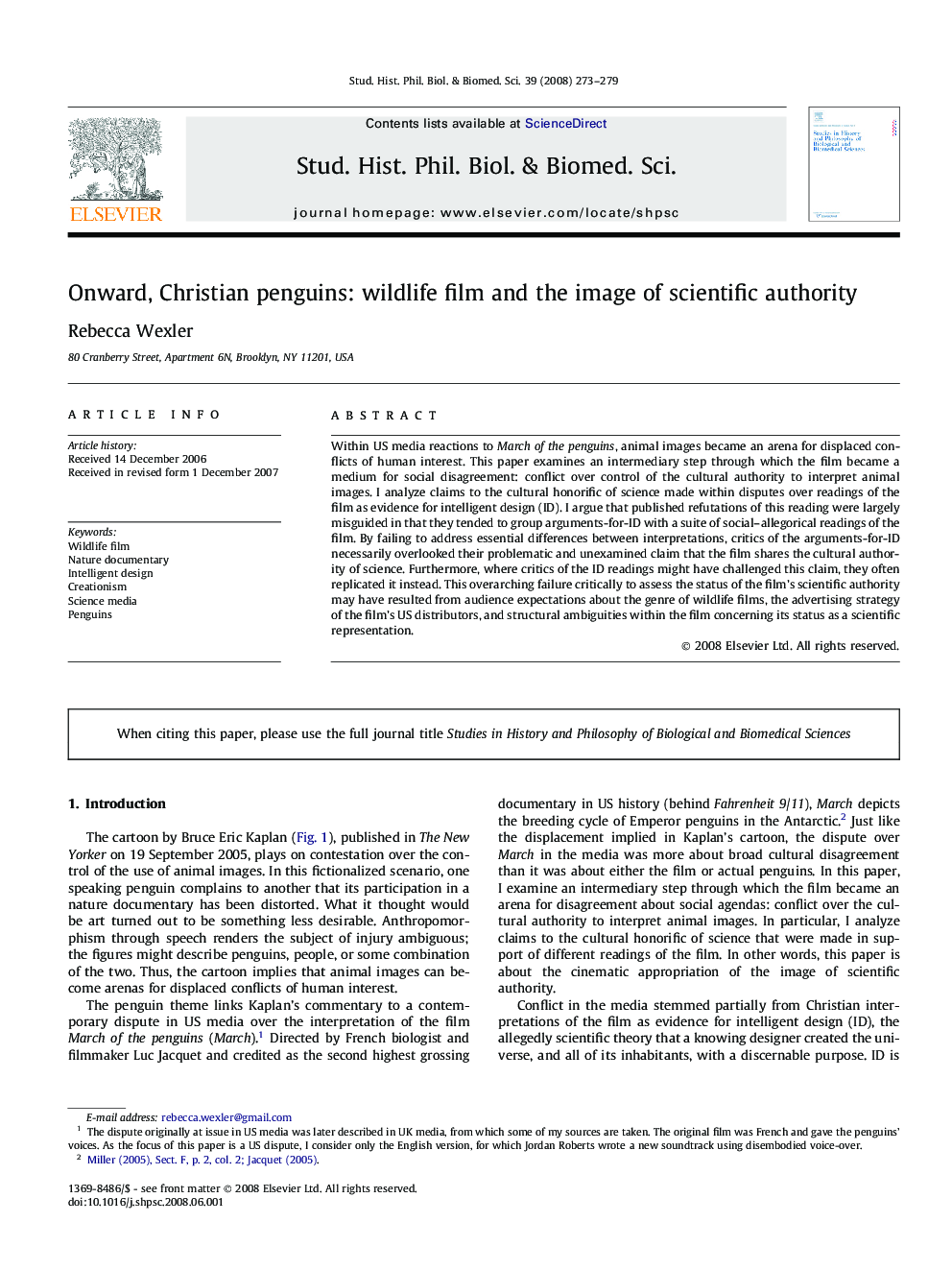| Article ID | Journal | Published Year | Pages | File Type |
|---|---|---|---|---|
| 1162083 | Studies in History and Philosophy of Science Part C: Studies in History and Philosophy of Biological and Biomedical Sciences | 2008 | 7 Pages |
Within US media reactions to March of the penguins, animal images became an arena for displaced conflicts of human interest. This paper examines an intermediary step through which the film became a medium for social disagreement: conflict over control of the cultural authority to interpret animal images. I analyze claims to the cultural honorific of science made within disputes over readings of the film as evidence for intelligent design (ID). I argue that published refutations of this reading were largely misguided in that they tended to group arguments-for-ID with a suite of social–allegorical readings of the film. By failing to address essential differences between interpretations, critics of the arguments-for-ID necessarily overlooked their problematic and unexamined claim that the film shares the cultural authority of science. Furthermore, where critics of the ID readings might have challenged this claim, they often replicated it instead. This overarching failure critically to assess the status of the film’s scientific authority may have resulted from audience expectations about the genre of wildlife films, the advertising strategy of the film’s US distributors, and structural ambiguities within the film concerning its status as a scientific representation.
